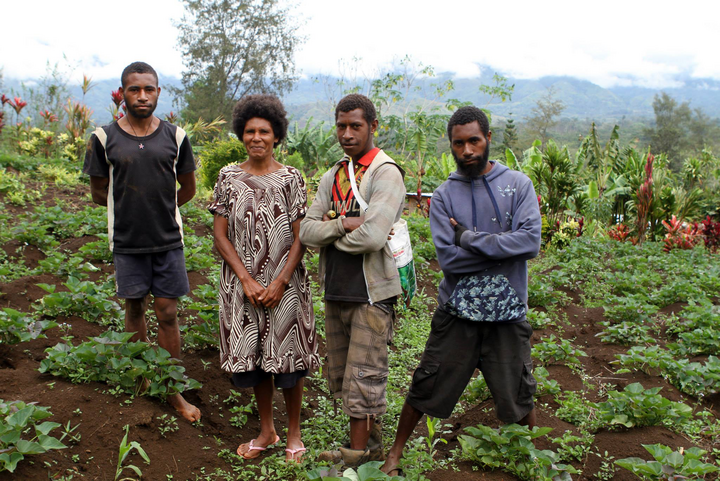Agriculture is not gender neutral says Bioversity International Director General

In light of the ‘Closing the gender gap in farming under climate change’ seminar, Future Earth interviews M. Ann Tutwiler about why it is important to turn knowledge into action.
Last week in Paris, CGIAR Research Program on Climate Change, Agriculture and Food Security (CCAFS), Future Earth and the International Social Science Council (ISSC) brought together several stakeholders to share stories and inspire renewed action to close the gender gap in farming under climate change.
One of the reasons why agriculture underperforms is because half of all farmers – women – lack equal access to the resources and opportunities needed to be more productive. As M. Ann Tutwiler, Director General at Bioversity International, underlined in an interview leading up to the ‘Closing the gender gap in farming under climate change’ seminar, closing this gender gap would generate significant gains for the agricultural sector and society. If women had the same access to productive resources as men they could increase yields on their farms by up to 30 per cent. This could raise total agricultural output in developing countries by 2.5-4 per cent.
Farming is not gender neutral; both men and women have a role to play. When it comes to choosing which crops to grow, women and men have different priorities; women often are the ones that safeguard the diversity of minor and forgotten crops that are resilient to climate change, for example minor millets in India. It is crucial to collect sex-disaggregated data when doing research – the lack of this information often underestimates women’s contributions to agricultural production.
Ann Tutwiler reminds her peers in the agricultural research arena to remember who we are working for; the selection of traits that are bred into crops have a different impact on men and women, yet men and women do different things with different crops – some are brought to the market, some are cooked, and some are grown just in case other crops fail.
At the close of the seminar, Ann Tutwiler – one of only two female Director Generals out of all 15 CGIAR research centers – was inspired to join Frank Rijsberman, CEO of the Consortium and Barbara Wells, Director General of the International Potato Center, in leading efforts towards female empowerment in the CGIAR system.
Read the Q&A with Ann Tutwiler published by Future Earth and watch the ‘Closing the gender gap in farming under climate change’ panel session
Photo:In Papua New Guinea, Bioversity International is working with farmers on taro, a crop grown mainly by men, and sweet potato, grown mainly by women. Credit: Bioversity International/P.Quek
